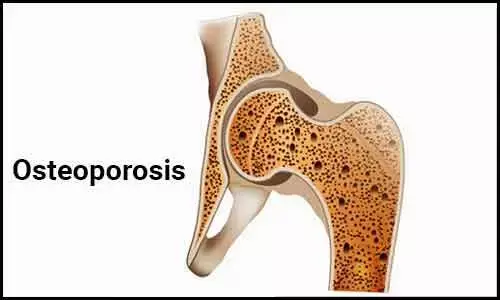- Home
- Medical news & Guidelines
- Anesthesiology
- Cardiology and CTVS
- Critical Care
- Dentistry
- Dermatology
- Diabetes and Endocrinology
- ENT
- Gastroenterology
- Medicine
- Nephrology
- Neurology
- Obstretics-Gynaecology
- Oncology
- Ophthalmology
- Orthopaedics
- Pediatrics-Neonatology
- Psychiatry
- Pulmonology
- Radiology
- Surgery
- Urology
- Laboratory Medicine
- Diet
- Nursing
- Paramedical
- Physiotherapy
- Health news
- Fact Check
- Bone Health Fact Check
- Brain Health Fact Check
- Cancer Related Fact Check
- Child Care Fact Check
- Dental and oral health fact check
- Diabetes and metabolic health fact check
- Diet and Nutrition Fact Check
- Eye and ENT Care Fact Check
- Fitness fact check
- Gut health fact check
- Heart health fact check
- Kidney health fact check
- Medical education fact check
- Men's health fact check
- Respiratory fact check
- Skin and hair care fact check
- Vaccine and Immunization fact check
- Women's health fact check
- AYUSH
- State News
- Andaman and Nicobar Islands
- Andhra Pradesh
- Arunachal Pradesh
- Assam
- Bihar
- Chandigarh
- Chattisgarh
- Dadra and Nagar Haveli
- Daman and Diu
- Delhi
- Goa
- Gujarat
- Haryana
- Himachal Pradesh
- Jammu & Kashmir
- Jharkhand
- Karnataka
- Kerala
- Ladakh
- Lakshadweep
- Madhya Pradesh
- Maharashtra
- Manipur
- Meghalaya
- Mizoram
- Nagaland
- Odisha
- Puducherry
- Punjab
- Rajasthan
- Sikkim
- Tamil Nadu
- Telangana
- Tripura
- Uttar Pradesh
- Uttrakhand
- West Bengal
- Medical Education
- Industry
Sleep duration linked to osteoporosis risk in adults, Finds study

Adequate amounts of appropriately timed sleep are necessary for optimal health and safety while alterations in the timing and duration of sleep are associated with numerous metabolic, cardiovascular, endocrine, and neurological disorders.
Controversy remains regarding the relationship between bone health and sleep. Consistent with reports of increased fracture risk with shift work, sleep and circadian disruption can increase sleepiness and reduce vigilance to environmental hazards, and possibly adversely affect balance which all can lead to an increased risk of falls and bone fracture.
In the literature, the effect of sleep on bone density in the clinical setting varies depending on the definition of normal sleep duration, sleep quality, selected population, and diagnostic tools for bone density.
A recent analysis based on a nationally representative sample using survey and inspection data clarified that there can be a possible relationship between bone density and the effect of the combination of sleep quality and duration.
The study is published in the Scientific Reports.
Chia-Lin Lee and colleagues from the Division of Endocrinology and Metabolism, Department of Internal Medicine, Taichung Veterans General Hospital, Taichung, Taiwan aimed to examine the association between bone mineral density (BMD)assessed by dual-energy X-ray absorptiometry and sleep duration/quality in the defined adult population from the National Health and Nutrition Examination Survey (NHANES) (a national household survey) within a 6-year period and also to explore age differences.
The authors analyzed a total of 12,793 subjects for the research. The basic variables, metabolic diseases, and bone density in the femoral neck as determined through dual-energy X-ray absorptiometry, were segregated, and analyzed according to different sleep durations (1-4, 5-6,7-8, and > 9 h/day) and sleep quality using multinomial regression models.
The researchers revealed that that women aged > 50 years with sleep duration < 5 h/day had a 7.35 (CI 3.438-15.715) odds of osteoporosis than those in other groups.
Hence, it was concluded that there can be an association between bone density and the effect of the combination of sleep quality and duration.
doi: 10.1038/s41598-021-88739-x
Dr. Nandita Mohan is a practicing pediatric dentist with more than 5 years of clinical work experience. Along with this, she is equally interested in keeping herself up to date about the latest developments in the field of medicine and dentistry which is the driving force for her to be in association with Medical Dialogues. She also has her name attached with many publications; both national and international. She has pursued her BDS from Rajiv Gandhi University of Health Sciences, Bangalore and later went to enter her dream specialty (MDS) in the Department of Pedodontics and Preventive Dentistry from Pt. B.D. Sharma University of Health Sciences. Through all the years of experience, her core interest in learning something new has never stopped. She can be contacted at editorial@medicaldialogues.in. Contact no. 011-43720751
Dr Kamal Kant Kohli-MBBS, DTCD- a chest specialist with more than 30 years of practice and a flair for writing clinical articles, Dr Kamal Kant Kohli joined Medical Dialogues as a Chief Editor of Medical News. Besides writing articles, as an editor, he proofreads and verifies all the medical content published on Medical Dialogues including those coming from journals, studies,medical conferences,guidelines etc. Email: drkohli@medicaldialogues.in. Contact no. 011-43720751


